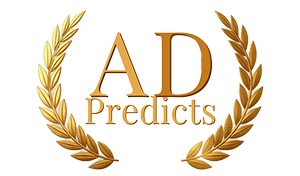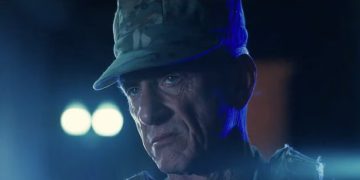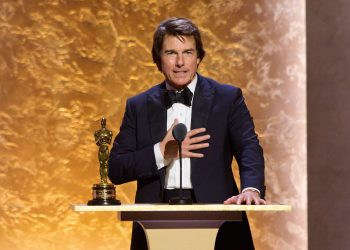Hacksaw Ridge introduces us to Desmond Doss, the unlikely hero who entered the Asian-Pacific theater during World War II unarmed. Doss was a medic who saved thousands of lives on the Okinawa battlefield without using any weapons. He was, as screenwriters Robert Schenkkan and Andrew Knight describe, “the first conscientious objector to win the medal of honor.”
Hacksaw Ridge is nominated for three Golden Globes including Best Picture, Best Director, and Best Actor for Andrew Garfield. Hacksaw Ridge took ten years to come to fruition, but its timing couldn’t be urgent. Read how both screenwriters came to be involved in telling the compelling, and brutally honest story of Desmond Doss.
Awards Daily: I have to say, this film made me think a lot, about mankind and humanity, especially where we are in the world right now.
Robert Schenkkan: I think your experience is one that audiences everywhere are having. They’re knocked out by the raw, emotional story which is so remarkable. Subsequently thrown back on them and forced in the best way that a great cinematic experience can have, to question yourself and think about what would you throw down? How strong is your faith? What would you be prepared to sacrifice for that?
As you say Jazz, right now at this time of world when there’s a great deal of anxiety, uncertainly, and conflicts, often driven by faith or religious differences, it’s a great story to be telling.
AD: For people who are not familiar with the story of Hacksaw Ridge, how would you sum it up?
RS: The way it’s often pitched is this is the true life story of the first conscientious objector to win the medal of honor. A pacifist who went to war and fought in a combat zone while refusing to carry or even touch a weapon.
Andrew Knight: That pretty much sums it up, but for me, it’s about a man who went to war driven by love, not fury. He was more concerned with saving people rather than killing them. It’s a love story really. It’s how I, Robert, and Mel all see it. It’s about a man driven by great faith and great love.
AD: How did you get involved with Hacksaw Ridge?
RS: I was approached in 2006, so ten years ago. The producers had just acquired the life rights to Desmond Doss. Hollywood had been chasing him since he returned from Okinawa at the end of World War II, but he always turned them down. He was very modest and was uncomfortable with the limelight. They even sent America’s most decorated war hero, Audie Murphy, but even then he wouldn’t do it. It wasn’t until the end of his life that he began to consider that it would be a good idea.
There was a simple black and white documentary that was made and David Permut and Bill Mechanic acquired the rights and approached me. I knew nothing about Desmond Doss. I knew a little about the Pacific war because my father served in the Pacific like Andrew’s and Mel’s. I always had a special place in my heart for what those men when through in that arena. They sent me the documentary and I was knocked out. I could not believe this story and I said yes immediately.
All I had to work with was the documentary and the interviews on tape, and later those were transcribed. I did some work on my own looking at U.S Army history, Okinawa campaigns, what medics did and trained for in World War II, but there wasn’t a lot. There wasn’t that much material.
A good portion of this for me was created out of the little that we had. That’s how I got involved. When the ten years of trying to get this made with many different drafts and directors, Mel Gibson came on board. It was at that time, I was in pre-production for All The Way and I couldn’t participate. The happy ending is they turned to Andrew and he came in and did this fantastic job working closely with Mel.
AK: I came in and Bill showed me the documentary and I had the same reaction as Robert. I saw the script and I’m grateful to Robert for that great script. It didn’t need very much, and we went into production. We hadn’t cast at that stage by the way. So, I played with some ideas about who could fit.
It’s an extraordinary story and you can’t help but be moved by it. Also, my dad went to war and came back damaged from it. It was such a moving thing to do.
AD: It took ten years. What made you stick to it for that long?
RS: I had such this strong, emotional connection to the story and felt it was so important. It was such a unique story and I know nothing that comes close to it that even happen which makes it even more extraordinary. I just felt this story needed to be told. I was going to do whatever I could to make it happen. It was about commitment to bringing his story to a wider audience. That’s what kept me going.
AK: The other thing that was so elegant about the story is you can pretend it’s a three-act structure, but it’s a two-act structure. There’s the buildup and the war. Writers like to prove they can be pyrotechnical, they like to build things and tear them down. What I loved about Robert’s script was he laid a very straight forward simple story —
[At this point in our conversation, we temporarily lost Andrew]
AD: What did you have to do to make sure it was accurate given you didn’t have many resources?
RS: You have to be prepared to take liberties. I’m always very clear when I approach something like this, I acknowledge that I’m not a historian. I’m not a documentarian. I’m an artist and a screenwriter. I’m going to compress time, condense it, and I’m going to take liberties with the story. I’m going to write dialogue and I’m going to create characters, but the one hard and fast rule is that I can do all of those. I can’t, however, have them do something that’s truly empathetic to who they truly are or were, and that to me is the key.
I will say that we were mindful of Desmond’s family and church and I’m proud to say they all feel happy with the movie. The greatest comment was from Desmond’s son revealed that he had struggled with his father and they had issues at the time, and this movie helped him understand his father in a way he never had. That was a generous thing to say. It was so important to both of us.
AK: Andrew returns. I was giving a long and passionate speech until I realized I was talking to no one in particular.
AD: It happens to all of us.
AK: Going back to what I was saying. Rather than show off in his writing, which is the temptation as a writer. He told this simple and elegant story because that’s what this man was like. Essentially, the two-act structure is as Mel described it, it’s Norman Rockwell meets Hieronymus Bosch. It’s 1930-1942 understanding of the world. It’s that absolute understanding of the world that was new in its way of thinking, colliding with our modern understanding of what war does to people.
We wanted to keep the story simple and not show off. It was to show the hell in the boot camp and then the hell of what he went through. What I love about what Mel has done is just the sustained nature of the campaign. As an audience, you can’t breathe, you can’t look away, you’ve gone with this innocent Gary Cooper film and all of a sudden you’re in there with him, and that’s why I think it works so profoundly, you’ve been lulled. You’ve been dancing around, and then hit with a smack on the head.
I’ve read the comment that it’s a pro-war film. I cannot believe that anyone watching that battle scene and think, “I wish I was there.”
AD: I saw a comment like that and thought, did we watch the same film?
AK: It’s a preconceived attitude. It’s right up there with Saving Private Ryan. Mel didn’t take a breath when he takes you into that world, he doesn’t let you go. My wife watched the film through fingertips. Spielberg would have let you breathe, Mel doesn’t.
AD: It’s just relentless.
AK: Absolutely.
AD: Doss gives us faith in humanity.
RS: It doesn’t matter whether you share Desmond’s religious faith at all, but this idea of an individual who has this principal and these sets of principals that they adhere to and they’re prepared to put everything on the line is something everyone can respond to.
Desmond models a very different kind of masculinity. Here we are in the age of Trump with this male image that’s all about self-interest and gratuitous cruelty, and dominance. Desmond is about subordination of self, self-sacrifice, and compassion. I think that’s a profoundly important idea to be supporting right now. It’s subversive.
AK: Andrew Garfield just pulls it off. When he speaks, he’s speaking to the essence of the other person. As an actor, he’s not just having a conversation, he’s looking inside them. His performance is extraordinary.
AD: Doss is the alternate male and that was something that was so nice to see.
AK: Robert was saying earlier, he doesn’t pick up the gun. He won’t pick up the gun, and he picks it up, just once, just to help a man.
RS: You put your heart and soul into these things and you never know what will happen to it. This was special. To see it succeeding is very gratifying.












